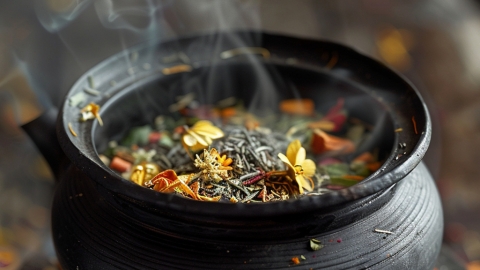Is it necessary to consult a doctor before using the combination of Rehmannia glutinosa, Astragalus complanatus, and Paeonia lactiflora?
Generally, the combination of Rehmannia glutinosa (Sh熟地黄), Astragalus complanatus (Sh沙苑子), and Paeonia lactiflora (B白芍) should be used under the guidance of a physician. The detailed explanation is as follows:

Although Rehmannia glutinosa, Astragalus complanatus, and Paeonia lactiflora are all commonly used traditional Chinese herbs, their combined use requires medical supervision. This is because each herb has its own unique medicinal properties, therapeutic effects, and indications, and individual body constitutions vary. Rehmannia glutinosa is warm in nature and functions to nourish yin, enrich blood, and replenish essence and marrow. However, it is relatively greasy and may impair the spleen and stomach's ability to transform and transport. Astragalus complanatus warms and tonifies the liver and kidneys, consolidates essence, and reduces urination; however, individuals with yin deficiency and fire hyperactivity may experience worsening symptoms. Paeonia lactiflora nourishes blood, regulates menstruation, restrains yin to stop sweating, and soothes the liver to relieve pain; it should be used cautiously in cases of abdominal pain and diarrhea caused by deficiency-cold. An individual's constitution—such as whether damp-heat, phlegm-dampness, yang deficiency, or yin deficiency exists—as well as the type and severity of the illness, will influence the ratio and dosage of these three herbs. Self-administration without understanding one's own constitution and the properties of the herbs may lead to suboptimal efficacy or even adverse reactions—for example, excessive use of Rehmannia glutinosa by individuals with weak spleen and stomach may cause abdominal distension and loss of appetite.
Prior to using this herbal combination, it is essential to consult a qualified physician. The physician will perform a syndrome differentiation based on the individual's specific condition to determine whether this combination is appropriate, as well as establish the suitable ratio and dosage. During the course of treatment, close attention should be paid to any bodily reactions. If adverse symptoms occur, the medication should be discontinued immediately and the physician informed so that the treatment plan can be adjusted accordingly. Additionally, do not arbitrarily increase or decrease the dosage or prolong the duration of treatment, to avoid unnecessary harm to the body.




